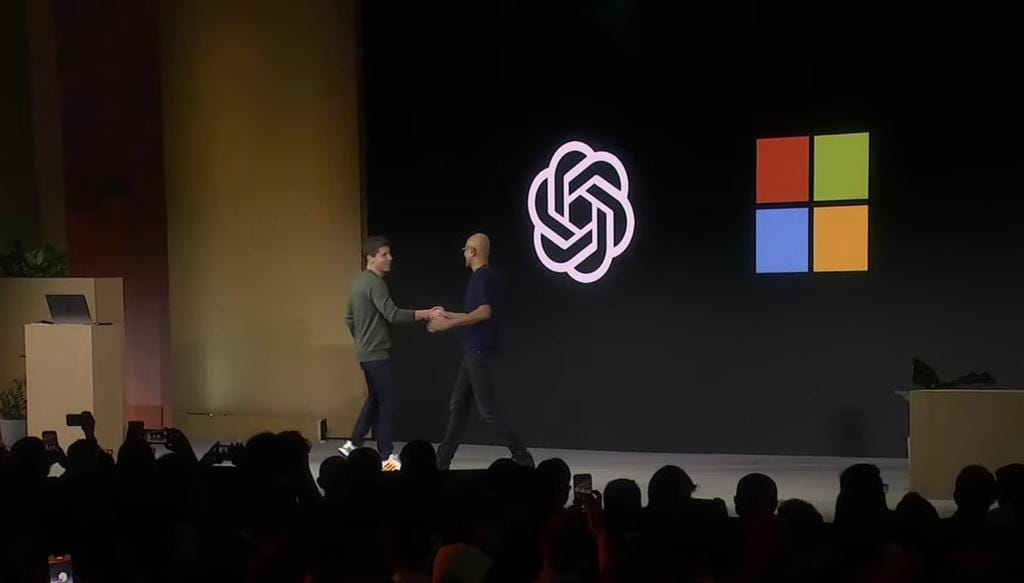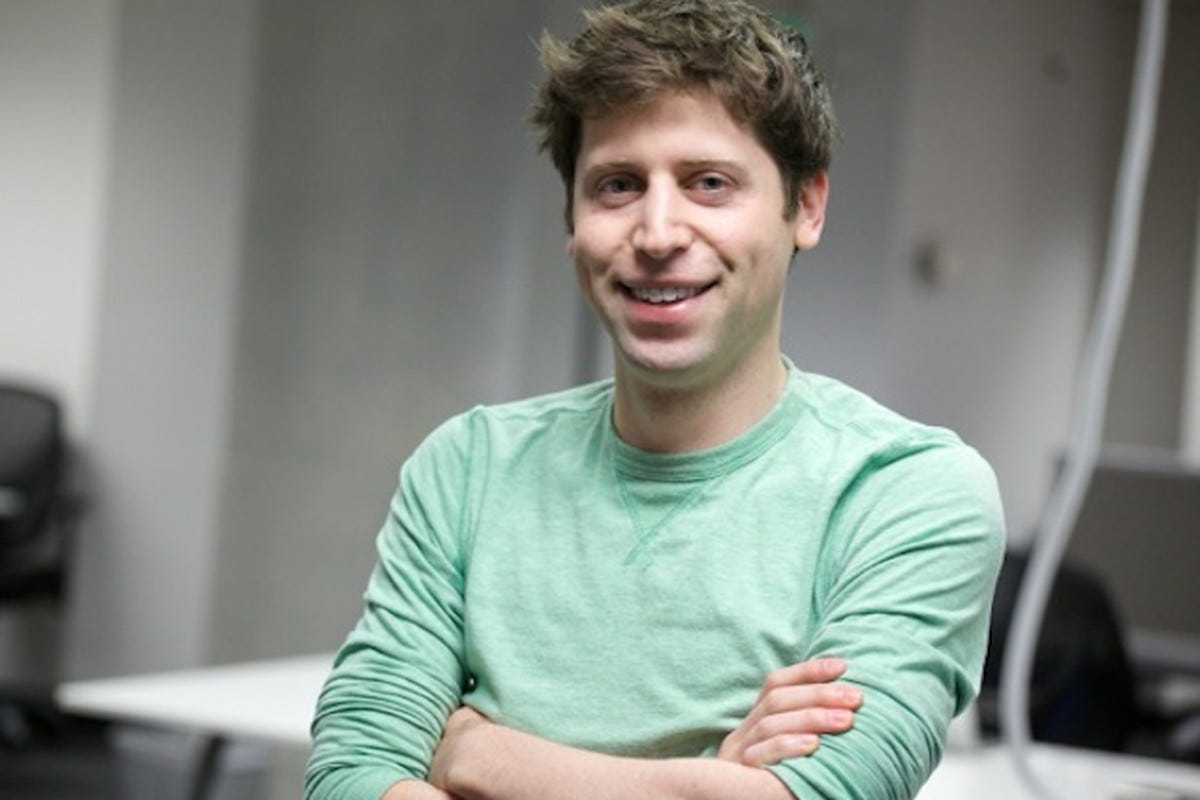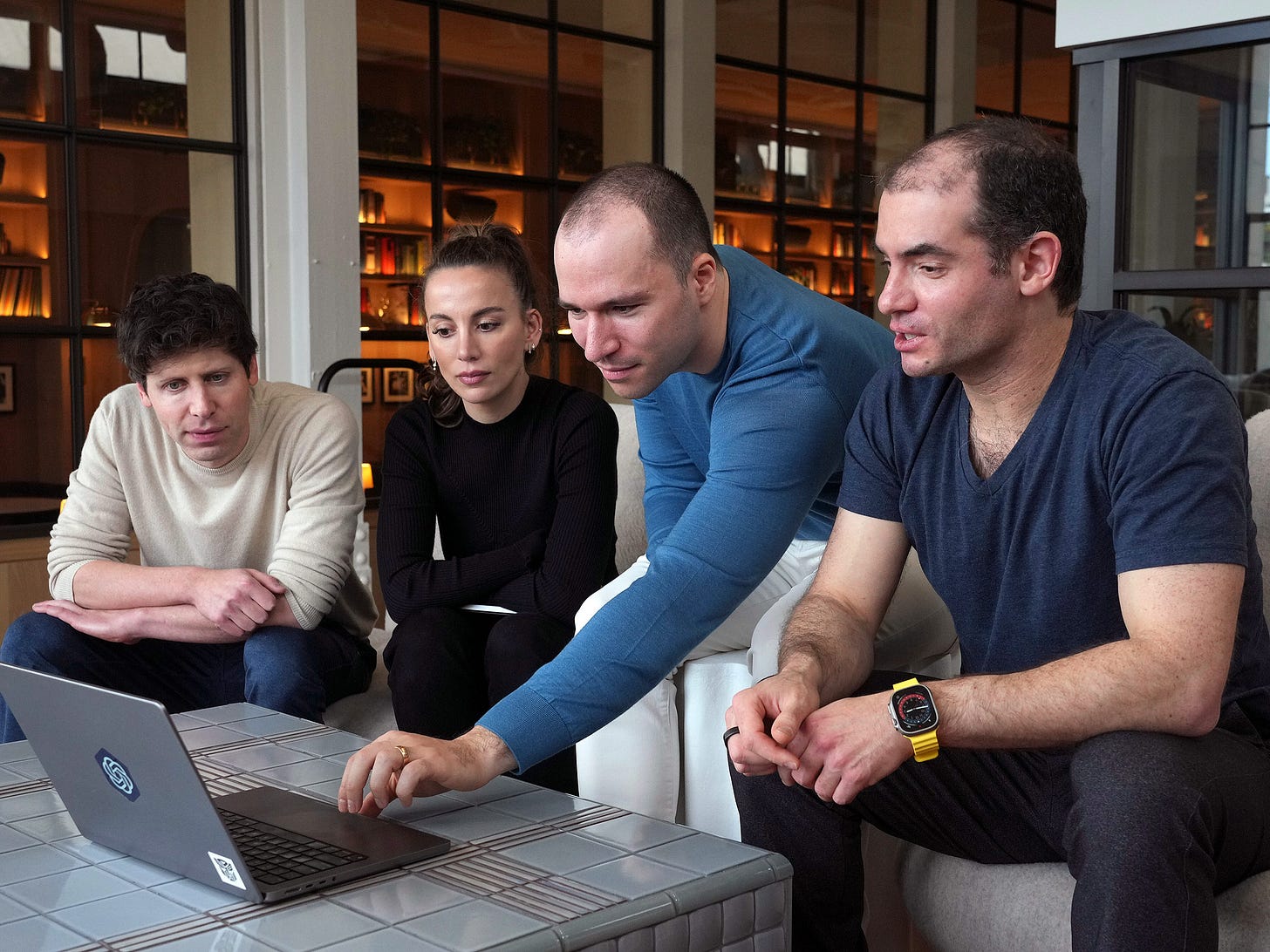Sam Altman, the CEO of OpenAI: The Prophet of Not-for-Profit?
As the company navigates this complex transition to a "for-profit" entity, there is every likelihood that it will face intense scrutiny from regulators, investors, and original founders.
The Birth of OpenAI: A Vision for Safe AI
Sam Altman, the CEO of OpenAI, has long been viewed as a pioneer in the world of artificial intelligence (AI), with his ambitions setting him apart from the conventional tech founders of Silicon Valley. OpenAI was created in 2015 with a bold and idealistic mission: to ensure that artificial general intelligence (AGI) benefits all of humanity. Structured as a nonprofit, it aimed to stay free from the pressures of shareholders, allowing the company to focus on ethics, safety, and equitable outcomes over financial gain.
Altman’s involvement brought credibility, not only due to his leadership at Y Combinator but also because of his deep belief in creating AGI for the public good, untethered from the commercial motivations that drive other tech giants. The nonprofit model was seen as essential for OpenAI to remain focused on benefiting humanity rather than succumbing to corporate interests.
The Shift to Profit: An Evolution or a Departure?
However, in 2019, OpenAI made a significant pivot by establishing a for-profit subsidiary to attract the substantial capital required for AI research. This decision was accompanied by a “capped profit” structure, which limited returns for investors while ensuring that the majority of profits were reinvested into the company or charitable causes. The idea was to balance ethical AI development with financial sustainability, a concept that was unprecedented in Silicon Valley.
Fast forward to 26th September, 2024, and OpenAI is preparing for yet another seismic shift: transforming into a for-profit benefit corporation, as first reported by Reuters. Such a change, driven by the need to raise $6.5 billion in new funding, would propel OpenAI’s valuation to $150 billion. While this opens doors to greater investment, it also marks a departure from its original nonprofit vision, leading many to question whether OpenAI is abandoning its ethical commitment to prioritise profits. Sam Altman, once the staunch advocate of the not-for-profit model, now stands to gain personally, with reports suggesting a 7% equity stake worth $10 billion.
Leadership Departure: Mira Murati’s Farewell
The resignation of Mira Murati, OpenAI’s highly regarded Chief Technology Officer, announced on the very same day, has been one of the most significant exits in recent memory. Murati played a crucial role in the development of GPT-4 and briefly served as interim CEO during the company’s tumultuous leadership crisis in 2023. In a heartfelt tweet announcing her departure, Murati expressed, “It's time for a new chapter, but I will always cherish the incredible journey and the mission we all worked towards at OpenAI. AI is the future, and I am proud to have contributed to shaping it responsibly.” While she framed her exit as a natural progression in her career, many speculate it may be tied to broader concerns about OpenAI's shift in priorities, with safety and ethical concerns being overshadowed by the pursuit of profits.
Exodus of Leadership: A Sign of Trouble?
Murati’s departure is not an isolated event. Alongside her, other key figures, such as Chief Research Officer Bob McGrew and VP of Research Barret Zoph, also left the company. This exodus has raised eyebrows, with some former employees voicing concerns that OpenAI is losing sight of its ethical commitment in favour of commercialisation. William Saunders, a research engineer who left earlier this year, revealed that he quit because he no longer believed the company would make responsible decisions about AGI development.
Such leadership upheaval adds fuel to the growing perception that OpenAI’s restructuring is more than just a financial move—it’s a philosophical shift. As Altman downplays the exits, insisting they were natural and unrelated to the company’s restructuring, questions about the future direction of OpenAI continue to loom.

Microsoft’s Influence: A Key Player Behind the Scenes
Much of OpenAI’s recent trajectory has been shaped by its relationship with Microsoft, one of its largest investors. Microsoft’s influence has been a double-edged sword. While it provides the capital necessary to continue OpenAI’s research and development, it also exerts significant control over the company’s decisions. In fact, it was Microsoft’s intervention that led to Altman’s reinstatement as CEO in 2023, after his brief ousting by the nonprofit board.
As OpenAI continues to develop AGI, the company’s reliance on corporate partnerships like Microsoft raises critical ethical and strategic concerns. Will OpenAI’s commitment to societal benefit be compromised by corporate interests, particularly as AGI begins to reshape industries, economies, and global power dynamics?
Legal and Ethical Implications of OpenAI’s Restructuring
The transition from nonprofit to for-profit also brings a host of legal and ethical challenges. The restructuring, while innovative, may attract litigation from original founders or investors who believe OpenAI has strayed from its mission. Moreover, as a for-profit benefit corporation, OpenAI will face new regulatory scrutiny, particularly regarding tax implications.
The Internal Revenue Service (IRS) will closely examine how the new entity’s profits are taxed and whether Altman’s potential equity stake triggers additional tax liabilities. Such a dramatic shift in structure may lead to protracted legal battles, especially given the financial stakes involved.
Summing Up: A Complex Future Ahead
Sam Altman’s transformation from the prophet of not-for-profit to the head of a $150 billion for-profit enterprise is emblematic of the evolving AI landscape. While the restructuring may be necessary to secure funding for future advancements, it has raised serious concerns about the company’s ethical foundation. With the departure of key leadership, increasing influence from investors like Microsoft, and mounting legal challenges, OpenAI’s future remains uncertain.
As the company navigates this complex transition, there is every likelihood that it will face intense scrutiny from regulators, investors, and original founders. The federal income tax implications alone could prove contentious, both in terms of corporate taxation and individual equity rewards. As OpenAI moves further away from its nonprofit roots, only time will tell whether it can balance profit with purpose, or whether it will become another corporate titan driven by financial imperatives.





![领英上的Ray (Kuanwei) Lu: [一場本週必看的TED:高中學歷的OpenAI董事長Greg Brockman] 有看過我先前寫的文章的朋友,一定看過OpenAI… 领英上的Ray (Kuanwei) Lu: [一場本週必看的TED:高中學歷的OpenAI董事長Greg Brockman] 有看過我先前寫的文章的朋友,一定看過OpenAI…](https://substackcdn.com/image/fetch/$s_!9MU4!,w_1456,c_limit,f_auto,q_auto:good,fl_progressive:steep/https%3A%2F%2Fsubstack-post-media.s3.amazonaws.com%2Fpublic%2Fimages%2F5098e4b0-bfbb-4752-ae4a-c383ce1e7715_800x961.jpeg)
